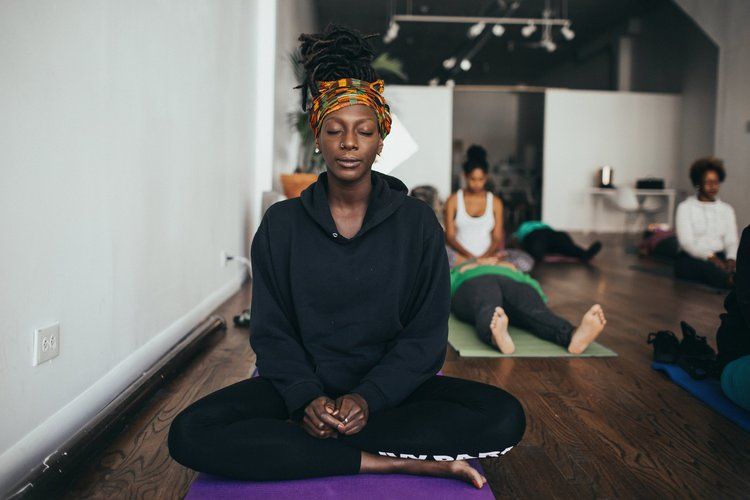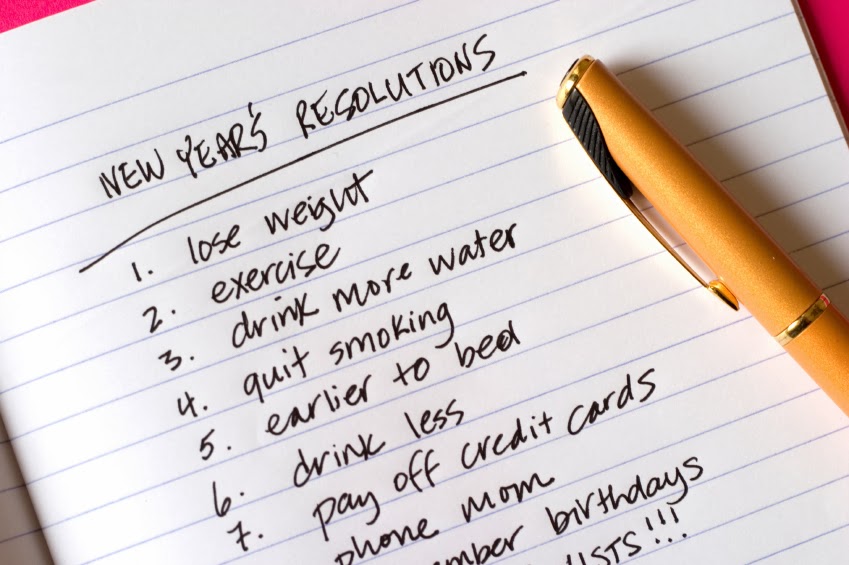
A recent study on New Year’s resolutions found that about 40% of people set resolutions at the start of the year, and less than half are successful after six months. We all want to make positive and impactful changes in our lives, but how can we make the changes last? Looking after our mental health is more important than ever. Not only are we living through a time of heightened anxiety and fearing for vulnerable loved ones, we’re dealing with loneliness and enormous upheaval to the way we live.

In one study, only around 12% of people who make New Year’s resolutions felt that they were successful in achieving their goals.2 Some of the most common resolutions include losing weight, sticking to a healthier diet, exercising regularly, making better financial choices, quitting smoking, and spending more time with family. When setting resolutions, it’s important to take time to reflect on the change you wish to see and what you realistically can do to achieve that change. By taking smaller, more achievable steps towards your goals, there is a greater chance that you will keep them. This applies to all kinds of resolutions, including mental health. You can help manage your mental health symptoms by taking small steps every day.

What kind of goals can you set?
Targets like exercising more, eating healthily and quitting smoking are likely to have a positive impact on your mental health, but there are plenty of other ways to commit to boosting your well-being.
“You can have mental health goals such as getting your anxiety under control, becoming more assertive or gaining more confidence,” says Daniel Fryer, a psychotherapist at Priory Hospital Bristol. “Having these types of mental health goals can help with any lifestyle-type resolutions you set yourself too, as when you are in a better headspace, you’re more likely to achieve them.”
Try gratitude journaling

Chambers advises setting simple, realistic goals, such as taking time to write in a ‘gratitude’ journal. “Take a few minutes to write down a few things you are grateful for, and why you are grateful for them. Gratitude is a skill you can cultivate and will, in turn, shift your mindset towards seeing more positivity and optimism,” he says.
Cut down on drinking and avoid drugs

You may have been drinking more than usual during the party season, and may even have taken drugs during this time. However, these substances are incredibly harmful to both your physical and mental health. It’s well-known that alcohol is a depressant, which can negatively affect your mood, making you feel low and anxious. Depending on which drugs you misuse, the effects on your mental health can range from anything from depression, anxiety and euphoria, to long-term psychosis, hallucinations and delusions.

There’s a whole host of benefits associated with giving up these substances. This is why it’s so important to take steps to cut back on your drinking (or stop altogether), and avoid drugs completely, as a means of improving your mental wellbeing. If you think you have a problem with alcohol or drug misuse, it’s crucial that you seek specialist support to help you to overcome your addiction.
Make time for self-care.

Brainstorm a list of self-care activities that make you happy and schedule them as part of your daily routine. This could be structured therapy sessions or daily exercise or simply an outdoor walk or time with loved ones. If you’re not sure how to fit self-care into your busy routine, read this article for more tips.
Be kind to yourself.

Change can be hard and often takes time. Allow yourself to have feelings and forgive yourself for mistakes. You are here and doing your best, and that’s what counts.
Make sleep a priority.

Studies have found that sleep and mental health are connected. In fact, approximately 65 to 90% of people with major depression also experience a sleep problem. This year, try to go to sleep a little bit earlier every night and give your body the rest it needs.
Limit your screen time.

Spending too much time on your phone or computer can impact your quality of sleep, your relationships and even lead to feelings of depression and anxiety. Be conscious of how much time you’re spending online and the impact it has on your mental health and make adjustments, if needed.
Create bite-size targets

“Break the goal down into specific actions and schedule them in, making them a priority,” Chambers advises. “Turn these actions into a plan, and you have a blueprint for the steps you need to take and the agency to get started.
“It is essential to track progress and to find ways to celebrate the small wins along the journey. This will give you the feeling of progress, the ability to see progress made, and increased motivation as you focus on the actions rather than the outcome.”
Don’t pressure yourself

Sometimes we forget to do things, or simply don’t feel up to it – and that’s absolutely fine. It’s important to be compassionate with yourself. If you feel pressured, take a step back and simplify your goal. Think about what it is that you’re finding difficult and steps you can take to make it more achievable.
“If you miss a day, acknowledge it and get back to those small actions,” Chambers says. “These small actions compound and you’ve only missed one day. Prioritize it, and you will be straight back on the path to your goal.”
Learn more about mental health.

One of the best ways to improve your mental health is to understand it. There are online resources available that provide information about common mental health and substance use conditions or you can talk to medical professional to learn more about your specific situation. You can also take a Mental Health First Aid course. MHFA teaches people how to understand, identify and respond to signs and symptoms of common mental health and substance use challenges.
Get help

If you find that you are struggling with a mental health problem, it’s important to recognize that specialist support is available. Contact Priory today to find out how we can help you to overcome your challenges and take steps towards the healthy and fulfilling lie that you deserve

